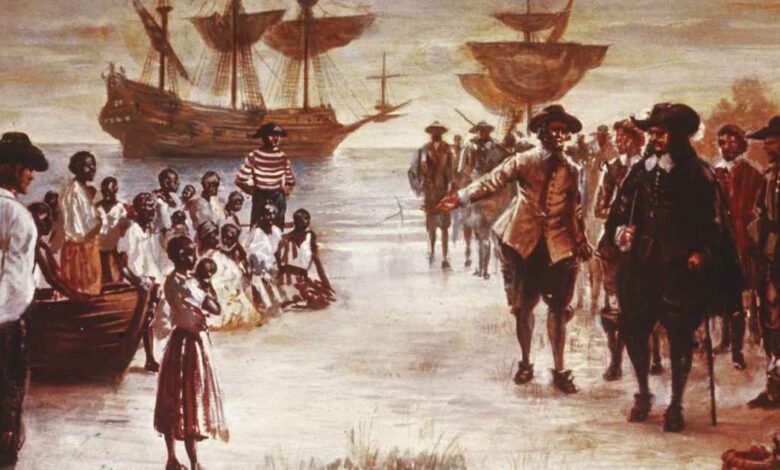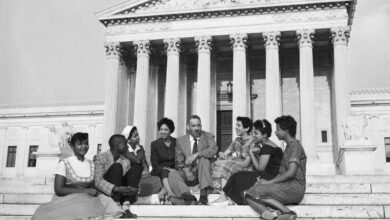America’s History of Slavery Began Long Before Jamestown

The arrival of these “20 and odd” Africans to England’s mainland American colonies in 1619 is now a focal point in history curricula. The date and their story have become symbolic of slavery’s roots, despite captive Africans likely being present in the Americas in the 1400s and as early as 1526 in the region that would become the United States.
“To ignore what had been happening with relative frequency in the broader Atlantic world over the preceding 100 years or so understates the real brutality of the ongoing slave trade, of which the 1619 group were undoubtedly a part, and minimizes the significant African presence in the Atlantic world to that point,” Guasco explains. “People of African descent have been ‘here’ longer than the English colonies.”
Africans had a notable presence in the Americas before colonization
Prior to 1619, hundreds of thousands of Africans, both free and enslaved, aided the establishment and survival of colonies in the Americas and the New World. They also fought against European oppression, and, in some instances, hindered the systematic spread of colonization.
Christopher Columbus likely transported the first Africans to the Americas in the late 1490s on his expeditions to the island of Hispaniola, now Haiti and the Dominican Republic. Their exact status, whether free or enslaved, remains disputed. But the timeline fits with what we know of the origins of the slave trade.
European trade of enslaved Africans began in the 1400s. “The first example we have of Africans being taken against their will and put on board European ships would take the story back to 1441,” says Guasco, when the Portuguese captured 12 Africans in Cabo Branco—modern-day Mauritania in north Africa—and brought them to Portugal as enslaved peoples.
In the region that would become the United States, there were no enslaved Africans before the Spanish occupation of Florida in the early 16th century, according to Linda Heywood and John Thornton, professors at Boston University and co-authors of Central Africans, Atlantic Creoles and the Foundation of the Americas, 1585-1660.
“There were significant numbers who were brought in as early as 1526,” says Heywood. That year, some of these enslaved Africans became part of a Spanish expedition to establish an outpost in what is now South Carolina. They rebelled, preventing the Spanish from founding the colony.
The uprising didn’t stop the inflow of enslaved Africans to Spanish Florida. “We don’t know how many followed, but there was certainly a slave population around St. Augustine,” says Heywood.
Africans also played a role in England’s early colonization efforts. Enslaved Africans may have been on board Sir Francis Drake’s fleet when he arrived at Roanoke Island in 1586 and failed to establish the first permanent English settlement in America. He and his cousin, John Hawkins, made three voyages to Guinea and Sierra Leone and enslaved between 1,200 and 1,400 Africans.
Although not part of present-day America, Africans from the West Indies were also present in the English colony of Bermuda in 1616, where they provided expert knowledge of tobacco cultivation to the Virginia Company.
Source link




